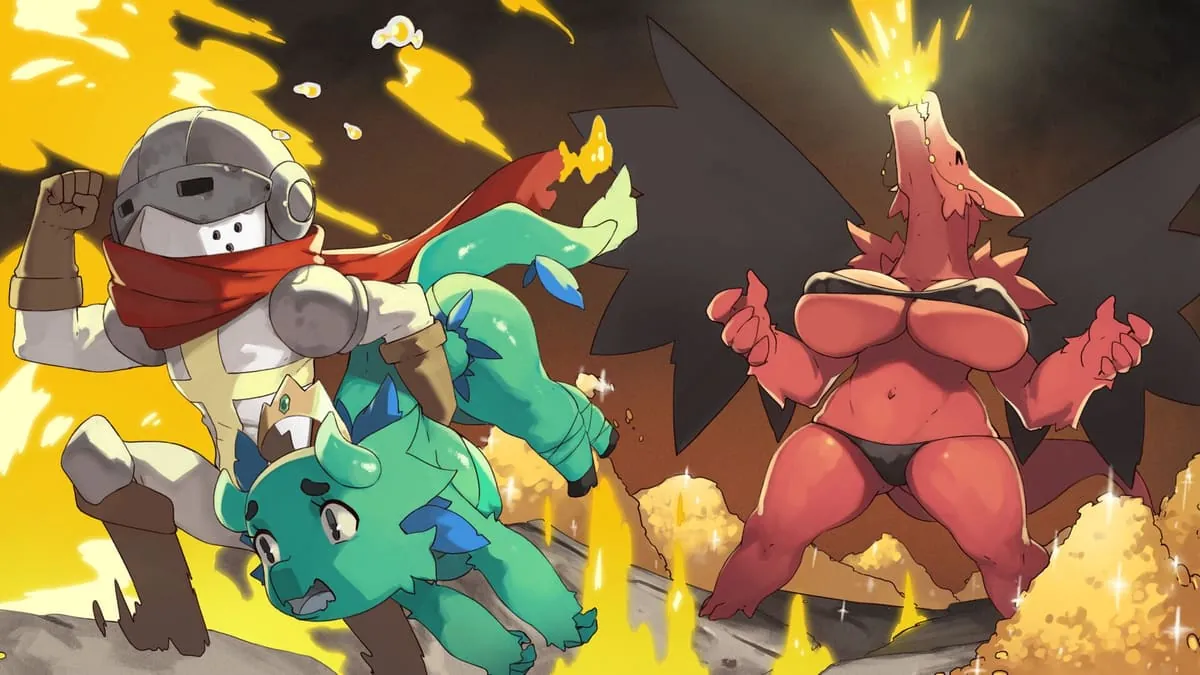
S.H.E.L.T.E.R. – An Apocalyptic Tale
Play S.H.E.L.T.E.R. – An Apocalyptic Tale
S.H.E.L.T.E.R. – An Apocalyptic Tale review
Explore the immersive post-apocalyptic world and rich romance choices of S.H.E.L.T.E.R.
S.H.E.L.T.E.R. – An Apocalyptic Tale is a captivating adult visual novel set in a post-apocalyptic world where your decisions shape humanity’s fate and your relationships. This game stands out with its engaging narrative, multiple romance paths, and immersive survival elements. Whether you’re a fan of story-driven games or looking for a unique visual novel experience, S.H.E.L.T.E.R. offers a blend of thrilling choices and memorable characters that keep players coming back. Let’s dive into what makes this game a must-play for enthusiasts of the genre.
Immersive Storyline and Setting in S.H.E.L.T.E.R. – An Apocalyptic Tale
What Makes the Post-Apocalyptic World Unique? 🏚️
Let me be honest with you—I’ve explored my fair share of devastated landscapes in games. Many of them feel like empty shells, with ruined buildings and generic dangers that serve as little more than a backdrop. S.H.E.L.T.E.R. – An Apocalyptic Tale is a different beast entirely. From the moment you start, you aren’t just observing the collapse of civilization; you are living and breathing it. The apocalyptic world setting isn’t just a stage; it’s a character in its own right, one that whispers secrets and screams dangers at every turn. 🗺️
What truly sets this post-apocalyptic visual novel apart is its profound sense of place. You aren’t in a generic “wasteland.” You are navigating the remains of a very specific, once-familiar world. The descriptions are so vivid—the scent of ozone after rain mixing with the ever-present dust, the way light filters through broken skyscrapers—that you can almost feel the grit on your skin. This attention to detail creates an immersive experience that is both haunting and beautiful. It’s a world that feels lived-in and lost, and your journey through it is deeply personal.
The atmosphere is a masterclass in tension and melancholy. One moment, you’re cautiously scavenging for supplies in a silent, picked-over supermarket, the next you’re huddled against the elements, listening to the distant, unnerving sounds of the new world. This isn’t a power fantasy; it’s a survival story. The environment directly challenges you, forcing you to make difficult decisions about resources, routes, and risks. Your connection to this world is the foundation of the entire S.H.E.L.T.E.R. storyline.
I remember a specific playthrough where I decided to explore a derelict school. The game didn’t just tell me it was a school; it showed me through scattered notebooks, faded artwork on the walls, and a sense of profound loss that hit me harder than any mutant creature could. It’s these subtle, environmental stories that elevate the apocalyptic world setting from a simple location to a core part of the narrative’s soul. This careful world-building is what makes this a standout story-driven adult game, dealing with mature themes of loss, legacy, and what remains when everything else is gone.
Narrative Choices and Their Impact 🧭
If you think your decisions in most games don’t matter, prepare to have your mind changed. The narrative choices impact in this game is nothing short of breathtaking. This isn’t about picking a “good” or “evil” dialogue option; it’s about navigating a murky gray area where every decision has weight, consequence, and often, a heartbreaking trade-off. The S.H.E.L.T.E.R. storyline is a fragile thing, shaped directly by your hands. ✨
The game masterfully weaves moral complexity into nearly every interaction. You’re not just deciding who to save; you’re deciding what kind of person you are in this new world. Are you a pragmatic survivor who hoards medicine for your own group, or a compassionate soul who shares it with strangers, potentially dooming those you care about? The game remembers your choices, and they echo throughout your journey, affecting who trusts you, who leaves, and who lives.
Let me give you a concrete example from my own experience. Early on, I encountered a small, independent group of survivors who were low on food. I had a modest surplus.
- Choice A: Share our supplies, gaining their trust but risking our own food security.
- Choice B: Politely decline, ensuring our group’s safety but making potential enemies.
- Choice C: (A hidden option, unlocked because I had a character with high perception) Notice they were hiding a serious infection and offer medicine instead, creating a deep, lasting alliance.
I chose Option A, feeling noble. Two days later, a key member of my own group fell ill, and we didn’t have the nutritional reserves to help them recover quickly. That “good” decision directly led to a major setback. This is the core of the game’s narrative choices impact—it forces you to live with the results, creating immense replay value. You’ll constantly wonder, “What if I had done it differently?”
Here’s a quick look at how a single major decision can branch out:
| Your Initial Decision | Short-Term Consequence | Long-Term Ripple Effect |
|---|---|---|
| Trust a mysterious stranger with information | Gain a valuable new location to explore | That location becomes ambushed later; a companion is injured |
| Prioritize saving research data over a person | Immediate moral disapproval from some characters | Unlocks advanced crafting options much later in the game |
| Show mercy to a defeated rival | They disappear, seemingly for good | They return at a critical moment to provide unexpected aid |
This system ensures that your journey is uniquely yours. The S.H.E.L.T.E.R. storyline isn’t something you watch; it’s something you build, break, and rebuild with every choice you make. 🤯
Character-Driven Plot and Emotional Depth 💔
While the world is falling apart outside, an equally compelling drama is unfolding within the walls of your shelter. The character development S.H.E.L.T.E.R.
delivers is some of the most nuanced I’ve encountered. These aren’t just archetypes or romance options; they are broken, complex people trying to piece together a reason to live. The emotional depth in visual novels is often discussed, but this game truly defines it.
Each companion has a rich backstory that unfolds organically through conversations, shared experiences, and your choices. You’ll learn about their lives before the collapse, their traumas, and their secret hopes. This character development S.H.E.L.T.E.R.
focuses on makes every interaction meaningful. A simple chat over a can of food can reveal layers of personality and past pain, making you genuinely care about their well-being.
The S.H.E.L.T.E.R. storyline is, at its heart, a story about human connections forged in fire. The romantic paths are a beautiful extension of this. They don’t feel tacked on; they feel earned. You build relationships slowly, through trust and shared hardship. I found myself not just pursuing a romance because I could, but because I genuinely wanted to see two characters find a sliver of happiness and comfort in their bleak world. The emotional depth in visual novels here is raw and real—it’s about vulnerability and support, not just grand gestures.
This is a key part of what makes it a mature story-driven adult game. It deals with themes like grief, guilt, and the struggle to maintain one’s humanity. I formed a deep bond with one character, let’s call her Alex, who was outwardly tough but secretly carried the guilt of having to leave someone behind. A pivotal moment came when we had to make a dangerous night-time watch. Through my dialogue choices, I could either reinforce her hardened exterior or encourage her to open up about her pain. Choosing the latter led to a heartbreaking confession under the stars that forever changed our relationship and my understanding of her actions.
Pro Tip: Pay close attention during quiet moments at the shelter. The most revealing character conversations often happen when you’re not on a mission, but simply sharing a meal or staring at the campfire. These are the moments where the deepest bonds are formed.
Your investment in these characters directly fuels the narrative choices impact. When you’re faced with a difficult decision, it’s not an abstract moral question—it’s about the people you’ve come to love. Will you risk the life of the person you’re growing close to to save a stranger? The game makes these dilemmas painfully personal. The character development S.H.E.L.T.E.R.
engineers ensures that you are not just managing stats, but nurturing fragile human beings, and the emotional depth in visual novels has never felt more consequential.
In the end, S.H.E.L.T.E.R. – An Apocalyptic Tale proves that the most compelling stories aren’t about the destruction of the world, but about the people trying to rebuild something from the ashes. Its powerful apocalyptic world setting, the profound narrative choices impact, and the incredible character development S.H.E.L.T.E.R.
provides come together to create an unforgettable journey that will linger in your mind long after the credits roll.
S.H.E.L.T.E.R. – An Apocalyptic Tale offers a rich blend of narrative depth, strategic gameplay, and engaging character relationships set against a compelling post-apocalyptic backdrop. Its choice-driven mechanics and multiple romance options provide a highly replayable experience that appeals to fans of adult visual novels. Whether you’re drawn by the story, the survival challenges, or the intricate relationships, this game invites you to explore a world where every decision matters. Dive in and discover your unique path through the ruins of civilization.













